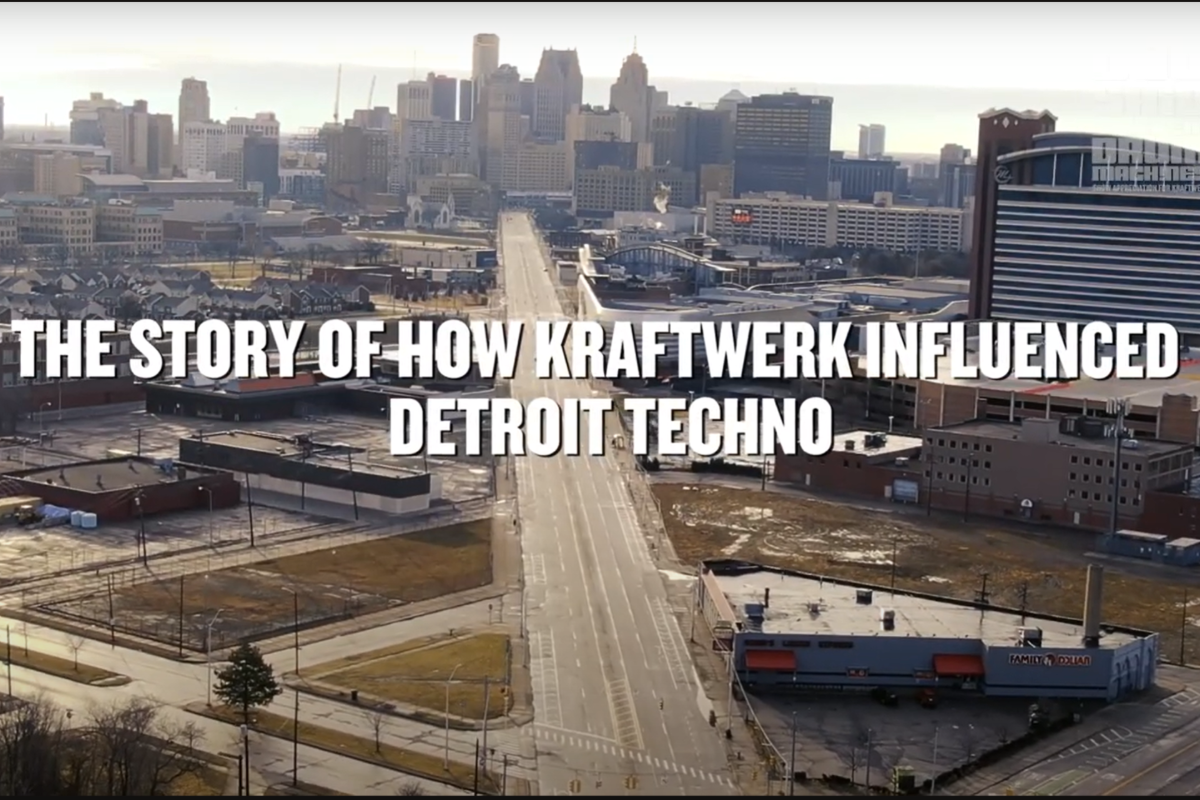Article: Kraftwerk Detroit Connection By Karolina V.

Kraftwerk Detroit Connection By Karolina V.
The Kraftwerk - Detroit Connection by Karolina V.
Not many people know but - Detroit is an original home of Techno music. The evolution of Detroit Techno is one of its most profound moments of cultural transformation, and Kraftwerk, the German pioneers of electronic music, played a key role in this narrative. Kraftwerk didn’t just push boundaries with their sound—they forged a new world of mechanical rhythms and electronic precision that felt like a glimpse into the future. Kraftwerk sparked the imagination of Juan Atkins and many others in Detroit's early Techno scene .Their influence on Detroit’s Techno movement is undeniable, but it’s about more than just music—it’s a story of culture, technology, and defiance.
The story behind Kraftwerk is very interesting. It originated as a German experimental group that is now widely regarded as the godfathers of electronic pop music. The original members were Ralf Hütter and Florian Schneider. They met studying and their foundation for Kraftwerk’s music was the sounds of everyday life, a concept first fully realized on the 22-minute title track of the Autobahn album (1974) Thus, when you dig into the history of Detroit Techno, it’s impossible to ignore the ways Kraftwerk’s futuristic sounds resonated with the city’s emerging artists.
In a city grappling with economic decline and industrial decay, a new generation of Black musicians, including Juan Atkins, Eddie Fowlkes, & Kevin Saunderson found in Kraftwerk’s music both inspiration and liberation. They absorbed these cold, mechanical sounds infusing the ghost in the machine. Giving life to something robotic, providing something robotic with a sense of soul.
Thus, creating something uniquely Detroit.

Watching God Said Give 'Em Drum Machines hit me in a way I didn’t expect. The documentary shows you just how Detroit’s Techno scene rose from the ashes of an industrial city that had lost its way. At one point, Detroit was the heart of American manufacturing. But as the factories closed and the city’s economy crumbled. The movie shows how people in the community had to find a new voice, a new way to express themselves. And out of that struggle, out of that need for something fresh, Techno was born. It’s more than just a genre; it’s Detroit’s way of reclaiming its own identity, its future, and its place in the world.
What struck me most was how Kraftwerk’s cold, robotic sound—so European, so mechanical—found such a perfect home in Detroit. Techno became more than a genre to the artists in Detroit—it became a tool for resistance, a way to tell their own story and push back against the marginalization they faced. The blend of Kraftwerk’s futuristic, minimalistic beats with the raw, soulful sonic pioneers energy of Detroit’s Black community wasn’t just a fusion of styles—it was a meeting of two worlds, each shaping the other in ways that changed the world, with ramifications that are still reverberating today.
Assembling a Black Counter Culture, a book that examines how techno evolved into an act of resistance, expands on this notion. This book claims that Techno gave young Black people a creative opportunity to express who they were and deal with their challenges. Techno, which combined electronic sounds with aspects of African American musical traditions, provided a forum for questioning popular cultural narratives while also reflecting the tenacity of these communities. The book also explores how the genre came to represent independence and self-determination. Black Techno artists used their craft to express individual and group resistance to oppressive systems by rejecting mainstream music's commercialized forms. Techno was born underground in Detroit, and altered the course of music history.
Author: Karolina V.
